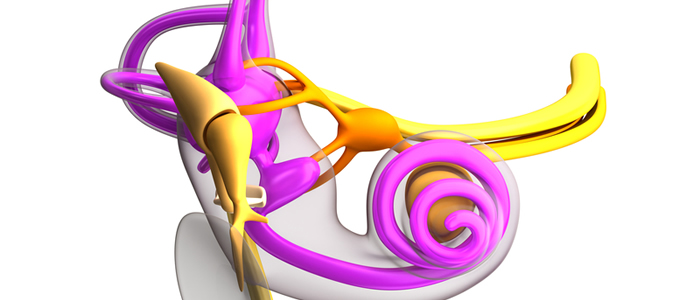
Ménière’s Disease
Ménière’s disease is a disorder of the inner ear that can cause debilitating episodes of vertigo and even hearing loss. The condition is most prevalent among adults between the ages of 20 and 50 years. Even though the condition in chronic, various treatments can minimize the symptoms and improve the quality of life.
Causes of Ménière’s Disease
It is believed that Ménière’s disease is caused by an abnormality in the inner ear. The condition typically only affects one ear; however, approximately 15 percent of patients are affected in both ears. Ménière’s disease appears to affect women more frequently. There is recent strong evidence from research done at the University of California Irvine that Ménière’s disease is primarily caused by a migraine problem which secondarily affects the inner ear.
Risk Factors for Ménière’s Disease
You may be at a higher risk for Ménière’s disease if you have any of the following:
- You have other family members with the condition
- You have a history of migraine, motion sickness, or headaches
- You have a family history of migraine, motion sickness or headaches
Symptoms of Ménière’s Disease
Ménière’s disease attacks can come on suddenly and last from a few hours to a few days. Most individuals with the condition experience episodic attacks for a number of years. During a Ménière’s episode, a person may experience the following symptoms:
- Tinnitus, which is a ringing, roaring, or hissing in the ear
- Extreme vertigo characterized by a spinning or dizzy sensation
- A feeling of fullness or pressure in the inner ear
- Temporary hearing loss
Each Ménière’s disease attack can cause damage to the inner ear. Over time, the damage may result in balance problems or permanent hearing loss.
Diagnostic Tests for Ménière’s Disease
Various tests are available to assess hearing and balance functions and exclude other possible causes of the attacks:
- A standard hearing test will typically show sensory hearing loss and a decrease in speech discrimination in the affected ear.
- Rotation or balance platform testing and an electronystagmogram may be used to evaluate balance function. An ENG involves introducing warm and cool air or water into the ear to determine how the ears and eyes work in conjunction with the nervous system.
- An electrocochleography can be used to check for an increase in inner ear pressure, which is common in patients with Ménière’s disease.
Treatment for Ménière’s Disease
A neurotologistcan help you choose from a number of different treatments, including:
- Dietary and lifestyle changes • Medications to relieve symptoms of vertigo
- Intratympanic injections – this is a procedure in which the doctor injects dexamethasone or rarely gentamicin through the eardrum and into the middle ear to alleviate dizziness
A very small number of patients may require surgery. This is generally only recommended if the symptoms are disabling and cannot be relieved with conservative measures including medication and injections.

